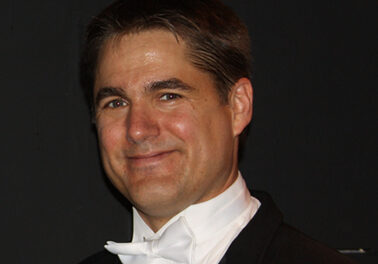Hendersonville is often overlooked when it comes to classical concerts. While Asheville and Brevard certainly possess a greater number, Hendersonville has a growing amount of performances ranging from symphony and community band concerts to chamber music events such as the one performed by the EastWind Quintet at the First Congregational Church last Sunday. Under the auspices of Hendersonville Chamber Music, the resident wind quintet at the University of North Carolina at Greensboro performed a diverse mix of music from the 19th through the 21st centuries which encompassed classical, Chinese folk music, Appalachian folk music and even a bit of jazz.
The group began the program with a zesty arrangement of Leonard Bernstein’s famous Overture to Candide. Alto saxophonist Steven Stusek and oboist Mary Ashley Barrett in particular shone on this selection, giving Bernstein’s lines quite a bit of bite and character.
“Eclecticism 2,” an original composition by bassoonist Michael Burns came second and impressed with its nicely woven texture as the performers traded off melodies and varied one another’s lines. By far the most beautiful selection of the afternoon was Gustav Holst’s “Song without Words” an arrangement of a movement from his Second Suite in F for Military Band. The group gave this piece the sensitive and intelligent performance it deserved, bringing out the luster of Holst’s melodies and leaving the listener wishing he could hear the whole suite. After a pretty performance of “Butterfly Romance” by Chen Gang and He Zhan Hou and a typically robust “Saturday Night Waltz” from Rodeo by Aaron Copland, the group closed the first half with an arrangement of Debussy’s Petite Suite, originally for piano four hands. While the entire suite was well played and gave voice to some pleasant melodies and harmonies by Debussy, the last movement, the “Ballet,” particularly stood out; its exciting and colorful style truly brought images of a ballet performance to mind as only Debussy can do.
The second half opened with the traditional Chinese song “Yao Dance” and Charles Gounod’s “Funeral March of a Marionette” (better known as the theme song to Alfred Hitchcock Presents). These two pieces gave a cute and lighthearted beginning to the second part of the program. Former UNC-G faculty member Eddie Bass composed “Laurel Branches” for the quintet, basing each of the four movements on an Appalachian folk song collected near the Tennessee-North Carolina border. The first three movements – “The Silk-Merchant’s Daughter,” “If You Want to Go A-Courting,” and “Come All You Fair and Tender Ladies” – were transformed into pieces displaying modern harmonies galore, an interesting approach at first, but sadly the first three movements tended to run together and lack distinctiveness. The last movement however, “The Cuckoo,” was as fun a piece as one could ask for with the alto sax, oboe and bassoon taking turns imitating the eponymous bird. “Flight of the Bumble Bee” by Nikolai Rimsky-Korsakov followed and saxophonist Steven Stusek once again impressed with his flawless velocity and rhythmic precision; this piece was one of the most exciting moments of the afternoon. Bringing the program to a close was a lovely arrangement of a suite from Porgy and Bess by George Gershwin. “Summertime,” “A Woman is a Sometime Thing,” “It Ain’t Necessarily So,” and “Bess, You is My Woman Now” exhibited the group’s extremely tight ensemble and left the audience with a very favorable impression.
The EastWind Quintet imparted to the audience a fun and adventurous concert and, despite a rough spot or two the audience was glad to be along for the ride.











